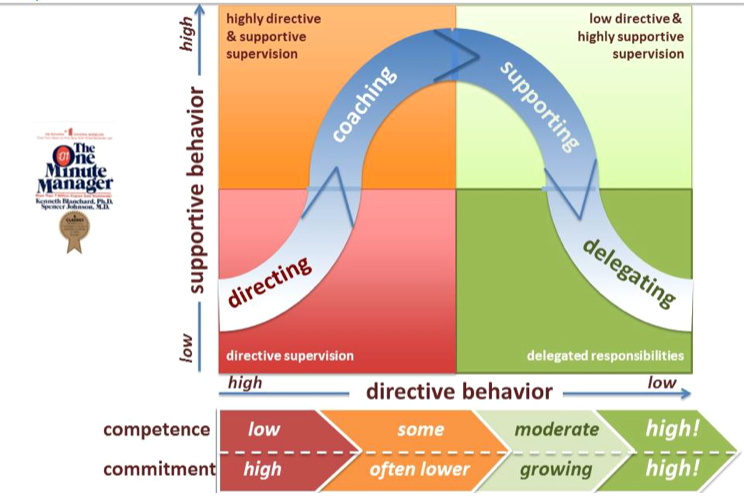Supervision
We discuss supervision of graduate students as an example.
When new students join your research group or new team members join your organization they need extra attention to be introduced to the culture, the work procedures, the specific instrumentation they have to work with, etc. The following scheme, adapted from the Blanchard’s One Minute Manager books indicates which phases such new members of the team usually go through.
Let’s take, for example, new PhD students who start on 3-year projects under your supervision. They enter the lab highly committed to work on his exciting new project, but their competence level is low. The students are helped by a directive style of supervision, where you give them clear instructions on what they need to read, to learn, and what to do in the laboratory.
After some time the students’ competence increases, but as they find out that the real world may less ideal than they anticipated, and that it poses its challenges, their morale and commitment may suffer a bit. Here they need direction and coaching, to support their dwindling morale.
When they starts to have successes in the laboratory, and their experience and self confidence have grown, they become more and more self directing, and you only have to support them.
Finally, they reach the stage where they become more or less independent, and regular work meetings are sufficient to keep track of their progress. The students have in fact developed into independent colleagues, to whom you can delegate many tasks. Competence and commitment are high, and they are getting ready to conclude the PhD project.

